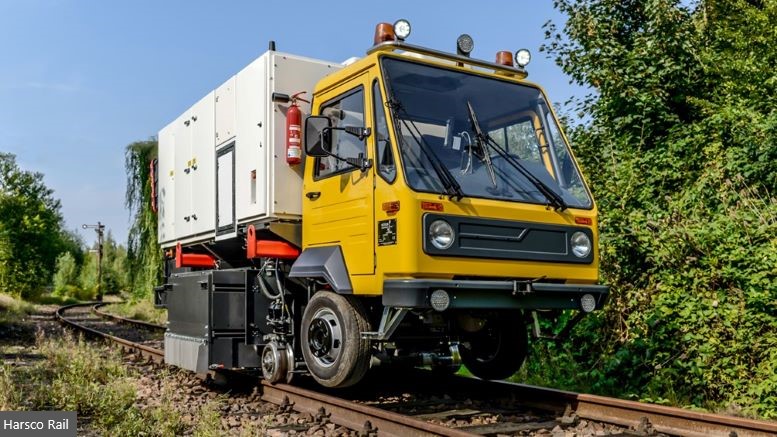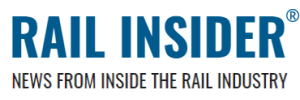
Harsco Rail, the railway equipment manufacturer and track maintenance company that, in the UK, specialises in rail grinding for Network Rail and is also due to supply seven new stoneblower machines over the next year, has added a Möser Maschinenbau Ro-V 149 rail grinder to its fleet.
The road-rail machine is perfect for use in urban areas on metro, light railways and tram networks due to its low 75dB noise level. As the new machine is based with Harsco in the UK, the British light-rail industry will no longer have to rely on obtaining grinding machines from mainland Europe – making it more efficient and flexible with the vital machine available at much shorter notice.
Rail grinders are used to both restore the rail profile, as the contours of the wheel-rail interface are critical to both safety and to minimising wear and subsequent maintenance, and to remove incipient rolling contact fatigue cracks before they can develop into anything more serious.

Railway infrastructure owners therefore have a programme of rail grinding, or rail milling if a higher rate of material removal is required, in order to keep their track in good condition. On a main-line network, they use large on-track machines that are trains in their own right. However, for light rail (trams) and other small networks, a road-rail solution provides simpler access and lower operating costs.
This is the intended market for the Ro-V 149, which can grind switches and grooved rail efficiently as well as plain track. It can also quickly and easily access even the main line railway if needed.
Due to its low width and height, the Ro-V 149 is able to operate in almost all clearance gauges. It is compact enough to allow for access in narrow passages, has low operational costs, with a maximum fuel consumption of 15 litres per hour, and a short set up time as it can be on and off-tracked in less than two minutes.

Harsco Rail director of contracted services and service fulfilment Dave Marsh said: “At Harsco Rail, we can now offer the Ro-V 149, as part of our contracted services, to any infrastructure manager in the UK that has grinding requirements. The convenience of this availability will be a huge benefit to the industry.
“Now we have this machine based in the UK, it will not only reduce mobilisation costs, but also increase flexibility, working more effectively and efficiently.”


Be the first to comment